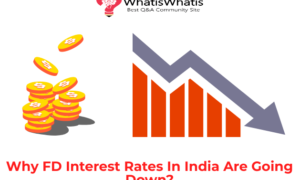For many investors, bank fixed deposits or FDs are their first choice. Reason being: easy to invest, low risk and guaranteed return at maturity. But many investors are now turning towards debt mutual funds, which have the potential to offer higher income tax-adjusted returns and provide more choices. So, which is the better investment option? Good FD rates or debt funds?
To answer this question, one must consider the following points and evaluate the type of investor he or she is:
1. Premature withdrawal from investment:
Fixed deposits:
• Do not allow withdrawals before maturity. In case you want to withdraw before maturity, you’ll have to break your FD.
• Few banks allow for partial withdrawal.
• Breaking a fixed deposit results in payment of a penalty and a lower rate of interest.
• Penalties range from 0.50% to 1%.
Debt mutual funds:
• Any amount can be withdrawn from the debt mutual fund account.
• The amount can be withdrawn at any time, and the mutual fund continues to function on the remaining amount.
• There is no loss of interest.
• Penalties are charged in the form of exit load, ranging from 0.25% – 1% and only applicable for periods of less than one year.
If you feel that you’ll need to break your investment before it reaches maturity, then you should invest in debt funds. On the other hand, if you want to make full use of the huge maturity benefits, then invest in fixed deposits. Please note that any investment, if withdrawnbef0ore maturity, will never pay out as much as you had hoped.
2. Rate of returns on investment:
Fixed deposits:
• Currently, fixed deposits offer you an interest rate of 8-9%. This does not change even in a financial crisis or volatility.
• Guaranteed return on investments.
• It enables financial planning.
• You can calculate a certain amount of money that can be expected as the total return on investment.
Debt Mutual funds:
• No guaranteed returns on investment.
• No fixed pre-communicated rate of interest.
• Rate of returns is subject to fluctuations and market volatility in interest rate.
If you are the type of investor, who has no desire to know what the result of the investment will be or wishes to take the risk of fluctuations in the market which could raise the rate of returns, then invest in debt funds. These funds earn dividends and not interest rate which could go higher or lower than you anticipate.
If you want to know exactly how much you’re investing, and how much you expect to receive as profitable returns, then invest in fixed deposits. It also facilitates better financial planning as you know how much you are going to earn at the end of the term.
3. Tax liability:
Fixed deposits offer you return on investment in the form of interest, and Debt Mutual Funds offer a return on investment in the form of capital appreciation or dividend.
Fixed Deposits:
• Attract a tax of up to 30%.
• Tax is applicable on the interest which hasn’t been received yet.
Debt Mutual Funds:
• Attract a tax of 30%, the same as FDs during the first year.
• Attract a tax lower than FDs between the first year and third year.
• No tax from third year onwards.
If you aim to save a little tax at the cost of exposing yourself to risk, invest in debt mutual funds. If you desire secured and guaranteed returns on investment from a high rated scheme, invest in fixed deposits.







Leave a comment